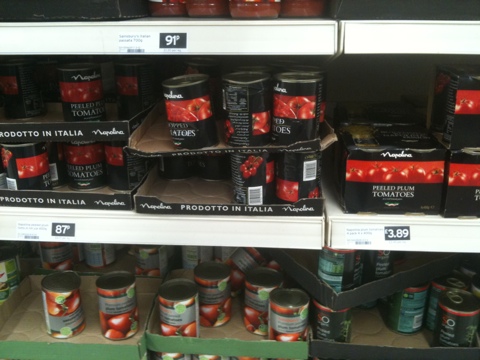I rarely get political on this blog – it is just asking for trouble, but today I saw that our own Prime Minister has seen fit to criticise a single person and draw scorn upon him by criticising his tax strategy. Â I saw this, and thought I needed to write something.
Now, you may love or hate Mr Cameron, and you may love or hate Jimmy Carr, and indeed, you may love or hate tax strategies that enable you to minimise what you have to pay to the government. None of this is my concern, except when I perceive such a ludicrous amount of hypocrisy and unfairness – wielding the power of the Prime Minister’s office on a single person in our country is not just unsavoury, it’s completely unacceptable. Mr Cameron is entitled to his own opinions but to become the nation’s moral compass and pass instant judgement on morality in the way that he has is to live up to his ‘Flashman’ nickname.
Let’s be clear – Jimmy Carr is acting within the law. Our own definitions of morality are not the point, but acting within the law is something we should be aware of at all times in this. The law is upheld by the judiciary, and made through legislation that is debated at length by our politicians. In short, Mr Cameron, you and your peers created the very situation that Jimmy Carr and others have exploited. It is totally legal, and whilst you may say that it is unsavoury, I am pretty darned sure there are many more things we would find unsavoury about you if only we knew them.
For example, did you not say that having dealings with people running an aggressive tax scheme is something you should avoid? Did you not allocate £900M extra funds to HMRC to combat this sort of loophole? Did you not appoint a person who you knew works this kind of strategy? And did you not inherit a whole shedload of money from similar activities and investments designed to minimise the tax payable to the government? How do you deal with yourself, dear David? Here, in case you don’t recall, is your interview.
Should Jimmy Carr repay the money? No, I don’t think so. He has simply taken an option that is available to ALL people in the UK, and uses a loophole that thousands of very wealthy people use, including many of our politicians… if not this exact strategy, then one very similar. Â And so would any one of us in his position.
Is it not a bigger issue to chase down the lost revenues from major corporations, such as Barclays, Vodaphone, Boots, etc, who are allowed to exploit similar loopholes and operate from overseas and who therefore cost thousands of times more money in lost revenues than you, I and Jimmy together would save?
I find this kind of bullying very unpalatable, the hypocrisy is epic and the nerve to consider yourself a moral compass entirely distasteful. However, yet again the media and the politicians will sew up the situation to their benefit and deride those who are taking perfectly legal action. One man’s morality is not another’s, clearly. Indeed, arguably, a moral man would not become a politician. Anyone recall the expense scandal? Oh yes… wasn’t that where we found out just how much immorality exists in Westminster, but were unable to remove all of the rotten apples, just a few examples?
In conclusion, I believe Jimmy Carr has done nothing wrong. He has made jokes at the expense of ‘fat cats’ and been found out to be one himself. So what. He still makes people laugh and has not acted illegally. There are many examples of similar schemes (Gary Barlow, anyone?) and many people benefit from using them, including politicians.
Of course, not everyone benefits from them… and that’s perhaps the point most would like to make. If I don’t benefit directly then it is a moral crime. If I do, I should keep quiet! If I were David Cameron, I’d be as quiet as a church mouse right now…

